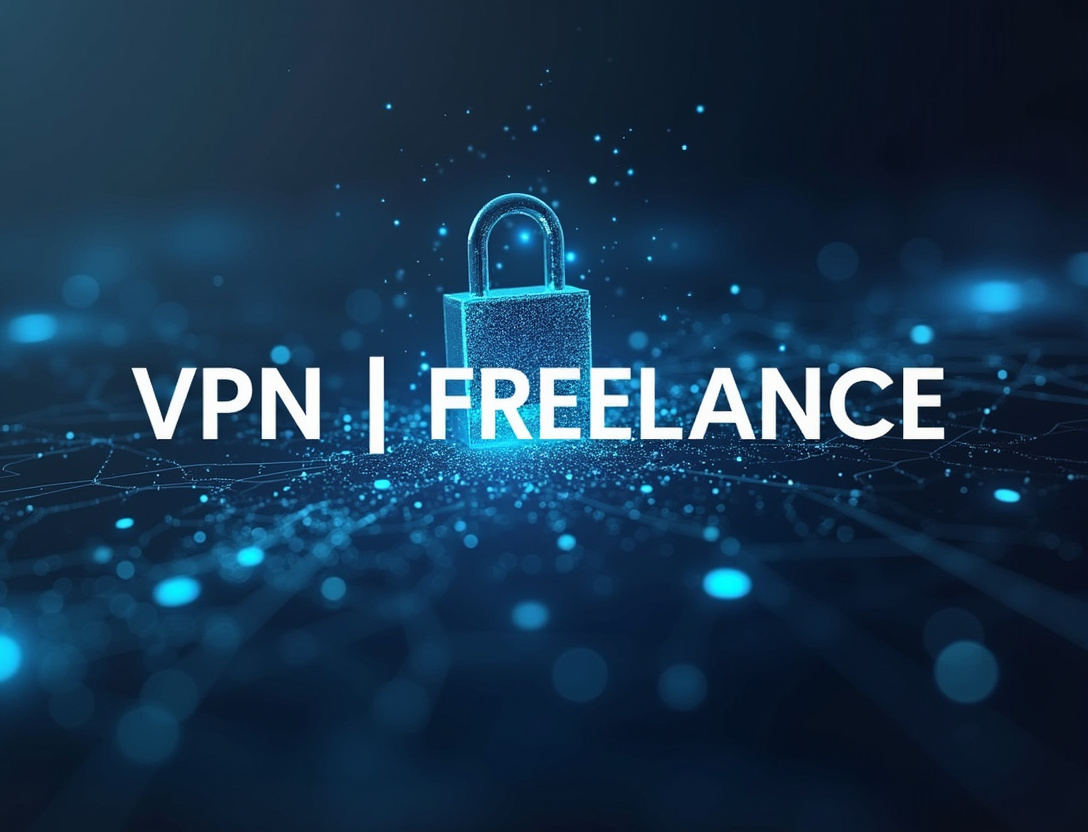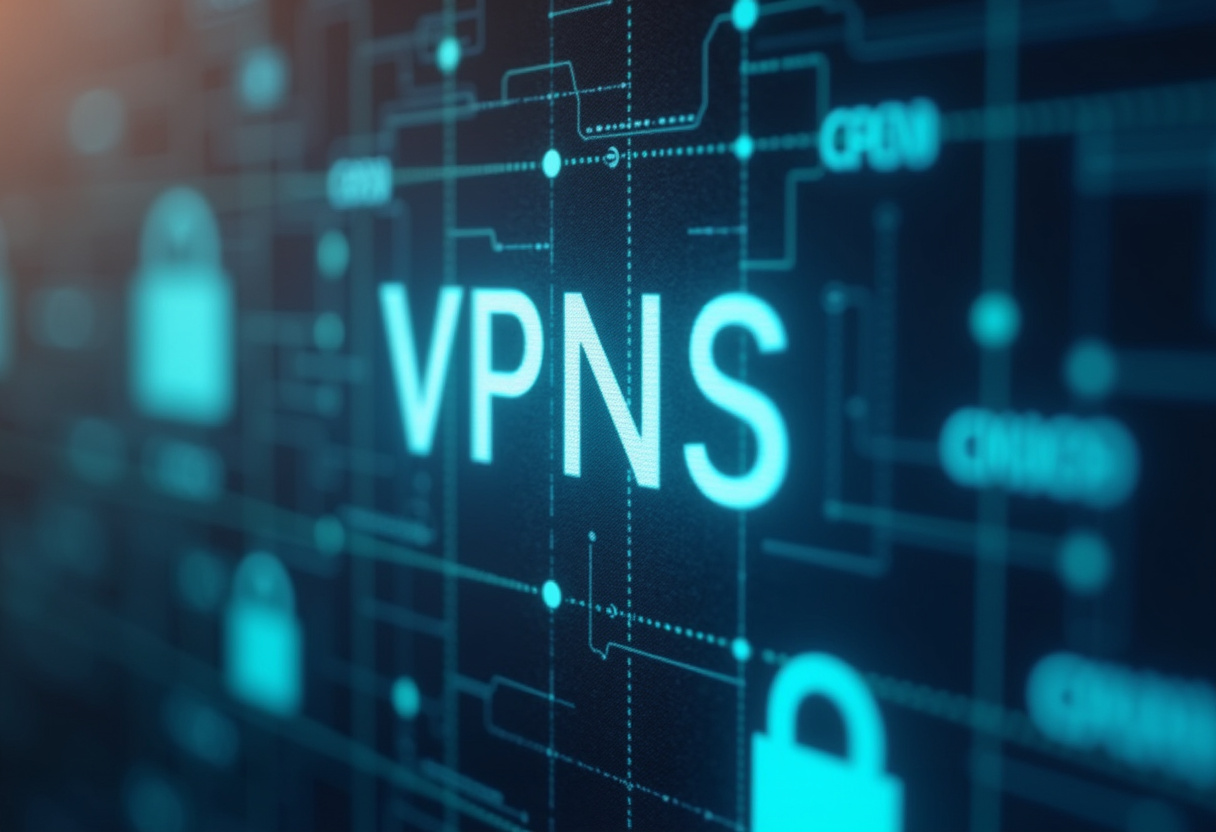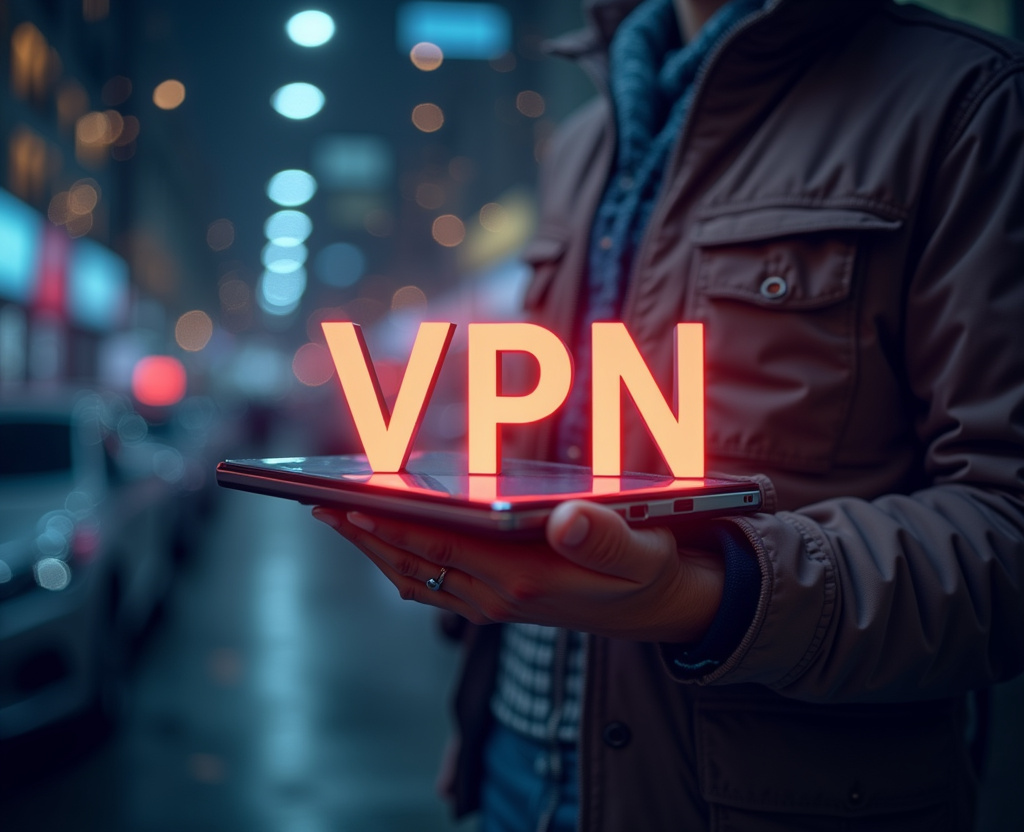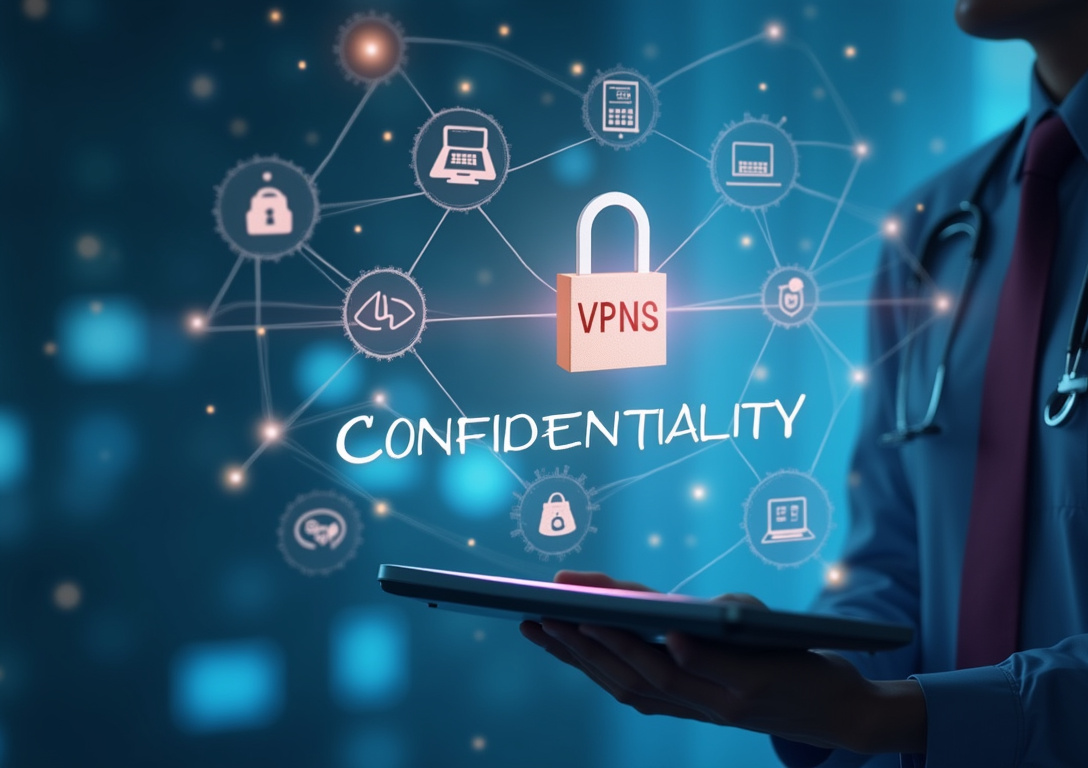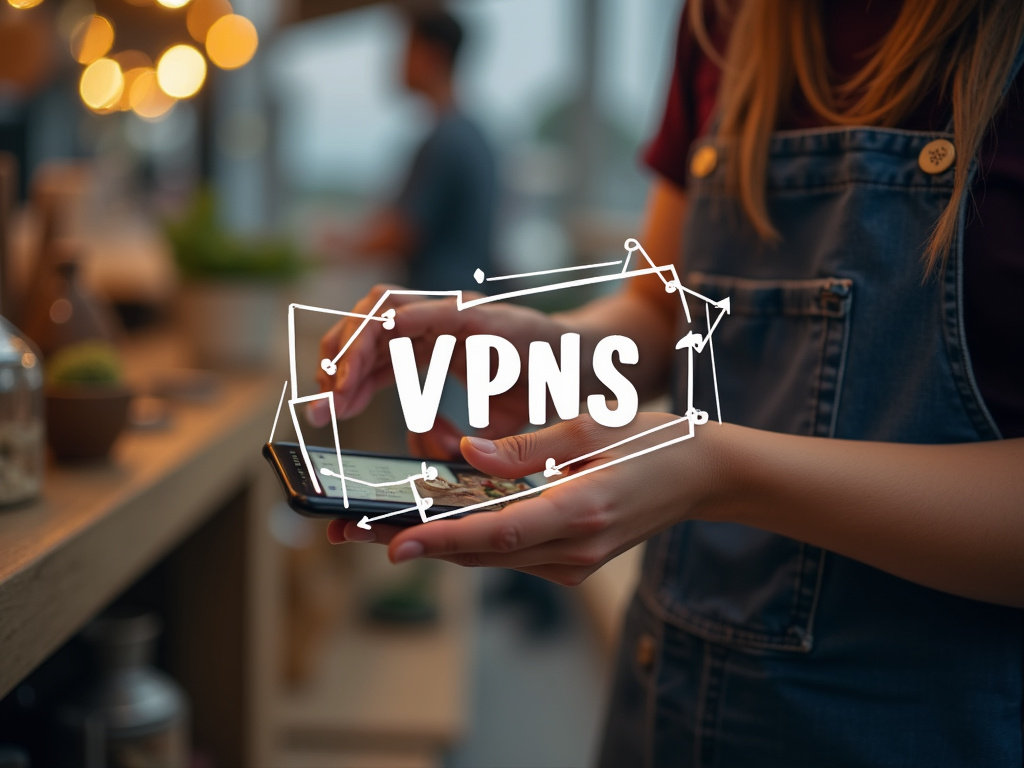Privacy and VPNs: How They Safeguard Your Data
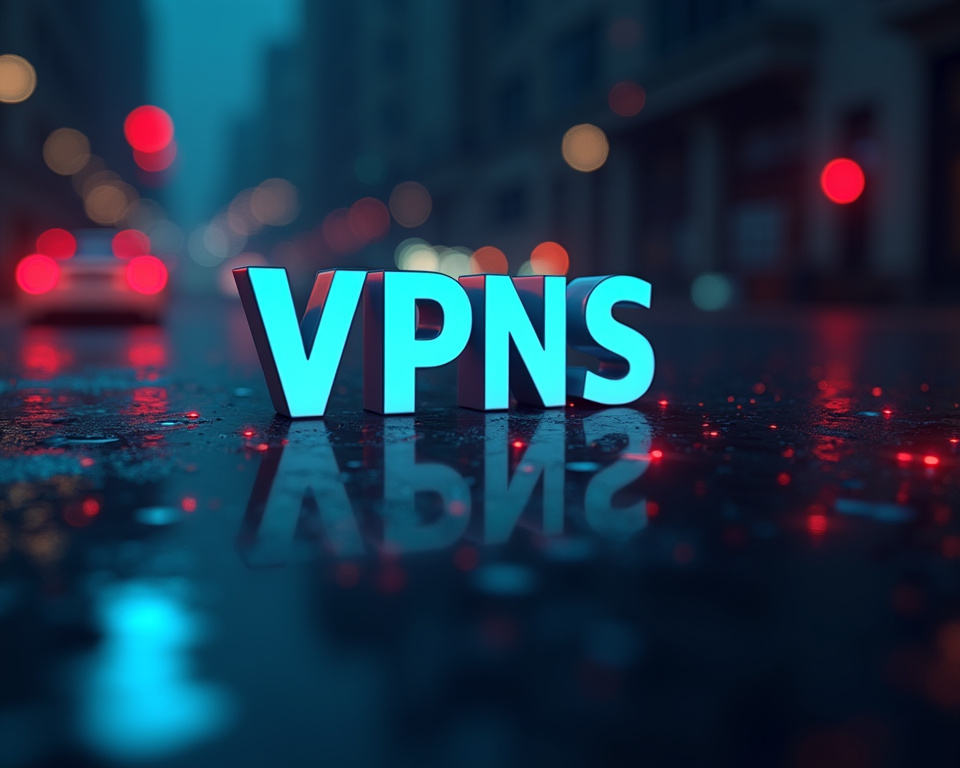
Table of Contents
Understanding the Fundamentals of VPN Technology
In an era defined by digital footprints and pervasive data collection, the quest for online privacy has become paramount. Our online activities are constantly scrutinized, tracked, and analyzed, raising legitimate concerns about the security of our personal information. Data breaches, government surveillance programs, and intrusive advertising practices have prompted internet users to seek solutions that guarantee data protection and, above all, online anonymity.
Among the most effective tools to have emerged, Virtual Private Networks (VPNs) offer a compelling combination of security and privacy and present a viable solution to shield personal data and cultivate a far more secure online experience. This article explores the world of VPNs, examining their role as digital bodyguards. We will explore just how VPNs safeguard your data, examining the mechanisms that provide anonymity to VPN users, and detailing the multitude of privacy benefits they unlock in an increasingly transparent digital world.
One of the core principles underpinning the entire concept of online privacy rests on the fundamental right to control your personal information. This includes the right to decide who has access to it, and what they can do with it. Without adequate protection measures in place, your online activities become an open book, easily tracked, dissected, and potentially used for purposes far removed from your explicit consent.
This lack of control can lead to a host of privacy concerns, including targeted advertising that feels invasive, price discrimination based on your browsing history, and, in the worst-case scenarios, even identity theft. A VPN functions as a digital shield, actively masking your IP address—your unique online identifier—and encrypting your internet traffic, creating a protective barrier against unwanted surveillance. This prevents various third parties, from nosy advertisers to malicious hackers, from intercepting and monitoring your online activities.
By connecting to a VPN server, your data is not sent directly to the website or service you're trying to access. Instead, it's securely routed through an encrypted "tunnel" to the VPN server first, ensuring its confidentiality and integrity throughout the journey. This process means that even if someone attempts to intercept your data mid-transmission, they will only encounter encrypted information that appears as meaningless gibberish, effectively unreadable without possessing the correct decryption key.
In essence, a VPN creates a private, secure network superimposed over the public internet, protecting your data from prying eyes and malicious interceptions. Furthermore, a VPN significantly enhances your online anonymity by strategically masking your IP address. An IP address acts as a digital fingerprint, revealing your approximate location and potentially even identifying details about your internet service provider.
When you connect to a VPN server, your real IP address is effectively hidden and replaced by the IP address of the VPN server itself. This clever maneuver makes it incredibly difficult for websites, online services, and other tracking entities to pinpoint your actual location or directly link your online activities back to you. This added layer of anonymity is crucial for protecting your privacy.
The strategic masking of your IP address effectively prevents the targeted tracking that has become a hallmark of modern online advertising and data collection practices. The benefits of using a VPN extend far beyond simply providing baseline privacy protection. VPNs offer tangible advantages in a variety of scenarios, making them an invaluable tool for navigating the modern digital world.
Enhancing Project Data Protection with VPNs
Data protection is a fundamental pillar of VPN security, ensuring that your personal information remains confidential and inaccessible to unauthorized parties. At its core, data protection within a VPN ecosystem hinges on the robust implementation of encryption protocols and a suite of supporting security measures, all working in concert to safeguard your data from interception, manipulation, and potential misuse. These meticulously designed protocols work by transforming your internet traffic, the constant stream of data flowing between your device and the internet, into unreadable code.
This scrambled data can only be deciphered and understood by someone who possesses the correct decryption key, effectively locking out anyone without authorization. This encryption process acts as a shield, preventing hackers lurking on public Wi-Fi, government agencies engaged in mass surveillance, and other third parties with malicious intent, from gleaning access to your sensitive information. The types of data protected include those most vital to your privacy: your passwords, financial details, personal communications (emails, instant messages, etc.), and your browsing history.
The level of encryption employed by a VPN is not merely a technical detail; it's a critical factor that directly determines the strength of its data protection capabilities. Strong encryption protocols, such as Advanced Encryption Standard (AES) with a 256-bit key, often abbreviated as AES-256, provide a truly formidable level of security. AES-256 is widely considered to be one of the most secure encryption standards available, employed by governments, financial institutions, and security experts worldwide.
The sheer computational power required to break AES-256 encryption makes it virtually impenetrable with current technology, ensuring that your data remains secure even in the face of sophisticated attacks. It is imperative to choose a VPN that explicitly utilizes robust encryption protocols like AES-256 to provide the highest level of confidentiality and integrity for your information. Beyond core encryption, robust VPNs also incorporate a layered defense strategy by implementing a variety of supplementary security measures to bolster data protection.
Firewalls, for instance, function as a gatekeeper between your device and the broader internet, meticulously scrutinizing incoming and outgoing network traffic. They act as a barrier to prevent unauthorized access attempts, effectively locking down your network and preventing malicious actors or unwanted programs from infiltrating your system. DNS leak protection is another vital feature, preventing your DNS (Domain Name System) queries from being routed through your internet service provider's servers.
DNS queries translate domain names (like google.com) into IP addresses, allowing your computer to connect to the correct web server. Without DNS leak protection, your ISP can still monitor the websites you visit, even when using a VPN. A kill switch acts as a fail-safe mechanism that automatically disconnects your internet connection immediately if the VPN connection unexpectedly drops.
In such a scenario, without a kill switch, your data would revert to being transmitted over your regular internet connection, potentially exposing your IP address and online activities. By instantly cutting off the internet connection, the kill switch ensures that your data is never transmitted unprotected, preserving your anonymity. When diligently evaluating VPNs for data protection, it is essential to look closely at their suite of security features and the protocols they support.
Prioritize providers that clearly state they offer strong encryption (AES-256 or similar), incorporate firewalls, guarantee DNS leak protection, and provide a reliable kill switch. These features represent a comprehensive shield against data breaches and unauthorized access to your personal information. Data protection also encompasses protecting your data from the VPN provider itself.
A reputable VPN provider will operate under a strict no-logs policy, a commitment to not track or store any information about your online activities This means the provider does not collect or retain any records of your browsing history, IP address, connection timestamps, data transfer volume, or any other information that could potentially identify you or your online behavior.
Choosing and Configuring a VPN for Optimal Security
Anonymity stands as a cornerstone benefit of using a VPN, empowering you to navigate the expansive digital landscape without revealing your true identity or geographical location. In essence, a VPN acts as a cloaking device for your online presence. The primary mechanism through which VPNs achieve this heightened anonymity is through the strategic masking of your IP address.
As we've discussed, your IP address is a unique identifier assigned to your device by your internet service provider (ISP). This IP address acts as a digital fingerprint, providing a trail back to your device and, potentially, your physical location. Websites, online services, advertisers, and even malicious actors can use your IP address to track your online activities, build profiles about your interests, and target you with tailored content or even cyberattacks.
When you establish a connection to a VPN server, your real IP address is effectively hidden from the outside world. Instead, your internet traffic appears to originate from the IP address of the VPN server itself. This crucial substitution makes it significantly more challenging, if not impossible, for websites and online services to accurately pinpoint your actual location or directly link your online activities back to your personal identity.
This added layer of obscurity is particularly advantageous in situations where you have a pressing need to safeguard your identity from potential threats or unwanted scrutiny. This might include scenarios involving government surveillance, corporate espionage, or online harassment campaigns. In such contexts, using a VPN allows you to browse the internet with a greater sense of confidence, knowing that your identity is shielded from prying eyes.
Beyond simply masking your IP address, VPNs further solidify your anonymity through the implementation of robust encryption protocols. Encryption, as we've already covered, works by scrambling your internet traffic into an unreadable format. This encryption process plays a vital twin role in preserving anonymity.
It not only protects the data itself, but also makes it extremely difficult for third parties, such as your ISP, to monitor your online activities and determine what you are doing online. Even if someone were to intercept your encrypted traffic, they would only see a jumble of indecipherable characters, offering no insight into your browsing habits, the websites you visit, or the content you are accessing. Moreover, a privacy-focused VPN takes additional steps to enhance anonymity beyond simply masking your IP address and encrypting your traffic.
These measures often include features like disabling WebRTC (Web Real-Time Communication), a technology that can inadvertently leak your real IP address even when using a VPN, and utilizing shared IP addresses, where multiple users share the same IP address on a VPN server, making it even more difficult to track individual users. When choosing a VPN with a strong focus on anonymity, it is crucial to carefully evaluate its logging policy. A no-logs VPN, as mentioned earlier, is one that does not collect or store any information that could be used to identify you or track your online activities.
This includes your IP address, browsing history, connection timestamps, and data transfer volume. A strict no-logs policy is absolutely essential for maintaining true online anonymity. Some VPN providers may claim to have a no-logs policy, but it is important to carefully scrutinize their privacy policy to ensure that it is genuine and not just marketing hype.
Look for VPNs that have undergone independent audits of their logging policies to verify their claims. In addition to the logging policy, also consider the jurisdiction in which the VPN provider is based. VPN providers that are based in countries with strong data protection laws and a commitment to privacy are generally a safer bet than those based in countries with lax data protection laws or a history of government surveillance.
By carefully selecting a VPN with a strong focus on anonymity, robust encryption, a strict no-logs policy, and a favorable jurisdiction, you can significantly enhance your online privacy and browse the internet with greater peace of mind.
VPNs for Services: Securing Subscription-Based Platforms
The advantages of employing a VPN extend far beyond the realms of basic privacy and anonymity. A VPN unlocks a wide array of benefits, enhancing your overall online experience in several significant ways. These benefits range from accessing geo-restricted content and securing public Wi-Fi connections to circumventing censorship and protecting yourself from bandwidth throttling.
One of the most sought-after benefits of using a VPN is the ability to bypass geographical restrictions, often referred to as geo-blocking. Many websites, streaming services, and online platforms restrict access to certain content based on the user's location. This geo-blocking can be frustrating for travelers who want to access their favorite content from home, or for individuals who want to access content that is not available in their country.
A VPN circumvents these restrictions by allowing you to connect to a server in a different location. For example, if you are traveling outside the US and want to access your Netflix US account, you can connect to a VPN server in the US and appear to be browsing from within the country, granting you full access to the US Netflix library. This ability to bypass geo-restrictions opens up a world of possibilities, granting you access to a wider range of entertainment, news, and information.
Another significant benefit of using a VPN is the enhanced security it provides when connecting to public Wi-Fi networks. Public Wi-Fi hotspots, such as those found in coffee shops, airports, and hotels, are notoriously insecure and vulnerable to hacking. These networks often lack proper security measures, making them a prime target for cybercriminals looking to intercept sensitive data, such as passwords, credit card numbers, and personal information.
When you connect to a public Wi-Fi network without a VPN, your data is transmitted unencrypted, making it easy for hackers to eavesdrop on your online activities. A VPN encrypts your internet traffic, creating a secure tunnel that protects your data from interception, even on unsecured public Wi-Fi networks. This encryption makes it significantly more difficult for hackers to access your personal information, providing you with a much-needed layer of security when working or browsing on the go.
Furthermore, VPNs play a crucial role in circumventing censorship and promoting freedom of information in countries with restrictive internet policies. In some countries, governments actively censor certain websites, social media platforms, and online content, limiting citizens' access to information and suppressing dissent. A VPN allows users to bypass these censorship filters by connecting to a server in a country with a free and open internet.
This allows them to access blocked websites, communicate freely, and stay informed about current events, empowering them to exercise their right to freedom of expression. In addition to bypassing censorship, VPNs can also protect you from bandwidth throttling, a practice used by some internet service providers (ISPs) to intentionally slow down your internet speed when you are engaging in certain activities, such as streaming videos or downloading large files. ISPs often throttle bandwidth to manage network congestion or to encourage users to upgrade to more expensive plans.
A VPN can prevent bandwidth throttling by encrypting your internet traffic and hiding your online activities from your ISP. This prevents your ISP from identifying the types of content you are accessing and throttling your bandwidth accordingly. By using a VPN, you can enjoy faster and more consistent internet speeds, regardless of your online activities.
Beyond these primary benefits, VPNs can also offer other advantages, such as protecting you from DDoS attacks while online gaming, preventing price discrimination by online retailers, and facilitating secure file sharing.
In the expansive and often turbulent digital landscape, selecting a privacy-focused VPN is paramount to safeguarding your data and preserving your online anonymity. However, with countless VPN providers vying for your attention, discerning the truly privacy-centric options from those that merely pay lip service to the concept requires careful evaluation and scrutiny. Several key factors should guide your decision-making process, including the VPN's jurisdiction, logging policy, encryption standards, security features, and reputation.
One of the most crucial factors to consider is the VPN provider's jurisdiction – the country in which it is legally based. VPN providers that are based in countries with strong data protection laws and a commitment to privacy are generally a safer bet than those based in countries with lax data protection laws or a history of government surveillance. Countries like Switzerland, Iceland, and Panama are often cited as favorable jurisdictions due to their robust privacy laws and lack of mandatory data retention policies.
Conversely, countries like the United States, the United Kingdom, and Australia are often viewed as less favorable due to their extensive surveillance programs and data-sharing agreements with other countries. Another critical factor is the VPN provider's logging policy. As we've emphasized throughout this article, a strict no-logs policy is essential for maintaining true online anonymity.
A no-logs VPN is one that does not collect or store any information that could be used to identify you or track your online activities. This includes your IP address, browsing history, connection timestamps, data transfer volume, and DNS queries. Before subscribing to a VPN service, carefully scrutinize its privacy policy to ensure that it explicitly states that it does not collect or store any of this information.
Be wary of VPN providers that claim to have a no-logs policy but then include vague or ambiguous language that leaves room for data collection. Look for VPNs that have undergone independent audits of their logging policies to verify their claims. These audits provide an independent assessment of the VPN's logging practices, offering greater assurance that it is adhering to its no-logs policy.
In addition to its jurisdiction and logging policy, the VPN's encryption standards and security features are also important considerations. As we've discussed, strong encryption protocols, such as AES-256, are essential for protecting your data from interception. Make sure that the VPN you choose supports these robust encryption protocols.
Also, look for VPNs that offer a range of security features, such as a kill switch, DNS leak protection, and WebRTC leak protection. These features provide additional layers of security, ensuring that your data remains protected even in the event of unexpected disruptions to your VPN connection. The reputation of the VPN provider is another important factor to consider.
Read online reviews and testimonials from other users to get a sense of their experiences with the service. Look for VPN providers that have a long track record of providing reliable service and protecting user privacy. Be wary of VPN providers that have a history of data breaches, privacy violations, or sharing user data with third parties.
In addition to these key factors, also consider the VPN's server network, speed, and customer support. A larger server network gives you more options for connecting to servers in different locations, allowing you to bypass geo-restrictions and find a server that provides optimal performance. Fast connection speeds are essential for streaming videos, downloading files, and engaging in other bandwidth-intensive activities.
Responsive and helpful customer support can be invaluable if you encounter any issues with the VPN service. By carefully considering all of these factors, you can choose a privacy-
Stay Updated
Get the latest VPN news, tips, and exclusive deals to your inbox.
